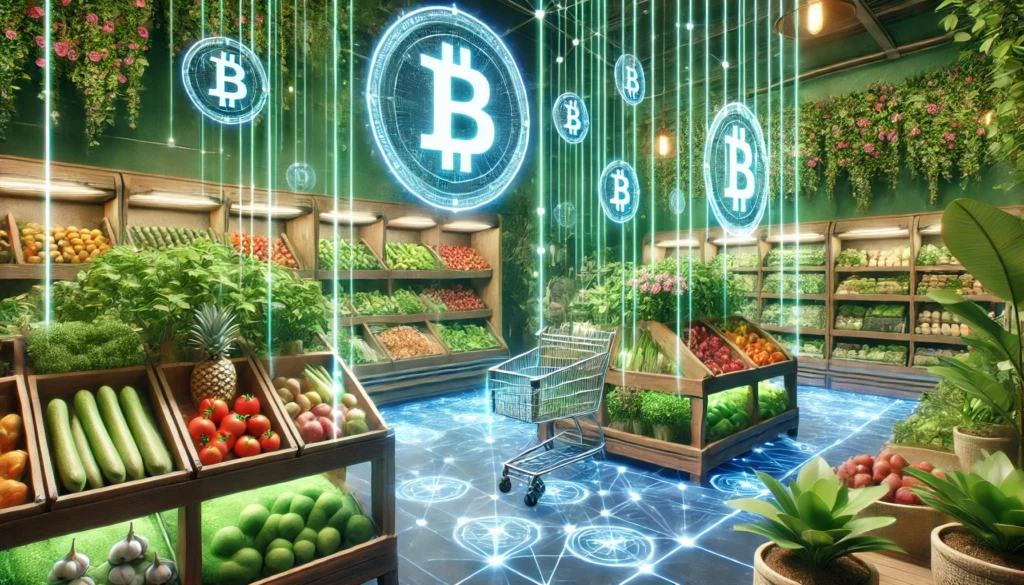Introduction
Blockchain technology is revolutionizing industries worldwide, and the organic and sustainable markets are no exception. As consumers become more conscious of where their products come from and demand greater transparency, blockchain offers an innovative solution. This blog explores how blockchain is enhancing traceability, authenticity, and efficiency in the organic and sustainable markets.
Understanding Blockchain in the Organic and Sustainable Space
Blockchain is a decentralized digital ledger that records transactions securely and transparently. Each block of information is immutable, meaning that once data is added, it cannot be altered. This makes blockchain ideal for industries where trust and transparency are paramount, such as organic farming and sustainable supply chains.
Key Ways Blockchain Is Impacting Organic and Sustainable Markets
1. Enhancing Supply Chain Transparency
One of the biggest challenges in the organic and sustainable markets is ensuring that products meet the required standards. Blockchain enables every stage of the supply chain to be recorded and verified, allowing consumers to trace the journey of their products from farm to table.
✅ Example: Organic food brands can use blockchain to ensure that their produce is free from pesticides and grown sustainably. Consumers can scan a QR code on the product to see its entire supply chain history.
2. Preventing Food Fraud and Mislabeling
Food fraud, such as mislabeling or falsely claiming organic certification, is a growing concern. Blockchain eliminates this risk by ensuring that all information is accurate and tamper-proof.
✅ Example: Companies using blockchain can guarantee the authenticity of organic certifications, reducing the chances of fraudulent claims.
3. Improving Efficiency and Reducing Waste
Blockchain reduces inefficiencies in supply chains by automating record-keeping and reducing paperwork. This helps reduce waste by identifying inefficiencies and bottlenecks.
✅ Example: Blockchain technology can help organic farmers track harvest times, reduce spoilage, and ensure timely delivery to retailers.
4. Empowering Ethical Sourcing and Fair Trade
Blockchain technology ensures that producers and farmers receive fair wages by recording payment data and ensuring that intermediaries do not exploit them.
✅ Example: Fair-trade coffee brands can use blockchain to guarantee that farmers are compensated fairly for their work, giving consumers confidence in their purchasing decisions.
5. Ensuring Compliance with Sustainability Standards
Companies can use blockchain to monitor and verify their adherence to sustainability goals and certifications such as Fair Trade, USDA Organic, and Rainforest Alliance.
✅ Example: Sustainable seafood companies can track fishing practices and ensure compliance with sustainable fishing regulations.
Benefits of Blockchain for Consumers
- 🔍 Greater Transparency: Consumers can access verifiable data about the origin, ingredients, and sustainability practices behind their products.
- 🛡️ Increased Trust: Blockchain reduces the risk of misleading claims, ensuring that customers get what they pay for.
- 🌿 Ethical Consumption: Consumers can make informed decisions about products that align with their values and environmental goals.
Challenges and Limitations
Despite its benefits, blockchain adoption in the organic and sustainable markets faces some challenges:
- 💸 High Implementation Costs: Integrating blockchain technology can be expensive, making it difficult for small farmers and producers.
- 📚 Lack of Technical Knowledge: Many stakeholders in the organic market may lack the technical expertise needed to implement blockchain.
- ⏳ Slow Adoption Rates: Adoption of blockchain in traditional industries can be slow, delaying widespread impact.
The Future of Blockchain in Organic and Sustainable Markets
The future looks promising as more companies invest in blockchain solutions to ensure transparency and sustainability. With advancements in technology and growing consumer demand for ethical products, blockchain will likely become a key component in reshaping the organic and sustainable markets.
Related Blog Posts
- Top 10 Organic Food Brands in India (2025)
- The Science Behind Organic Tea: Why It’s Healthier for You
Conclusion
Blockchain technology is transforming the organic and sustainable markets by enhancing transparency, preventing fraud, and ensuring fair trade practices. As adoption increases, consumers will have greater trust in the products they buy, contributing to a more ethical and sustainable future.

